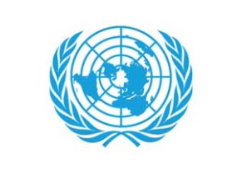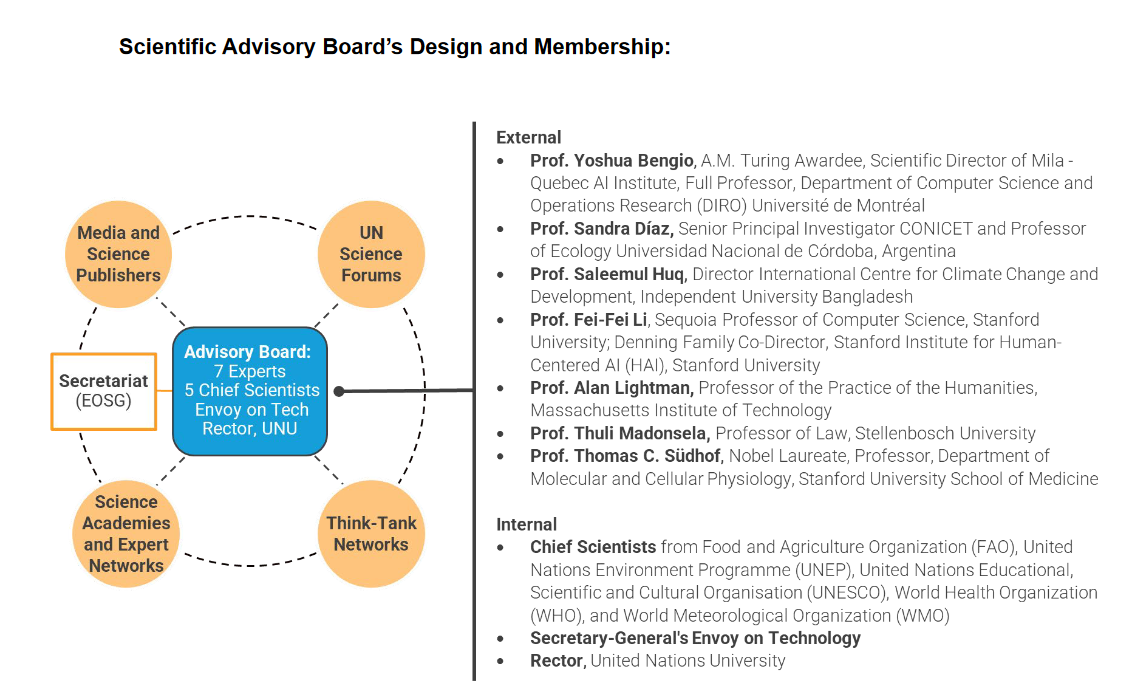


In a significant move towards enhancing the synergy between science and policy, United Nations Secretary-General António Guterres has announced the establishment of a Scientific Advisory Board. This Board will play a pivotal role in advising UN leaders on the latest breakthroughs in science and technology and guiding the harnessing of their benefits while addressing potential risks. Mr. Guterres emphasized, “Scientific and technological progress can support efforts to achieve the Sustainable Development Goals — but they are also giving rise to ethical, legal, and political concerns that require multilateral solutions. My Scientific Advisory Board will strengthen the role of the United Nations as a reliable source of data and evidence and provide advice to me and my senior management team.”
Comprising seven eminent scholars alongside the Chief Scientists of United Nations System entities, the Secretary-General’s Envoy on Technology, and the Rector of the United Nations University, the Advisory Board will be associated with a diverse network of scientific institutions from around the world. The Board's composition aims to foster a robust interface between the scientific community and decision-making within the UN. Commenting on this pivotal decision, Professor Yoshua Bengio, Scientific Director of Mila — Quebec AI Institute and Professor at the Université de Montréal, stated, “The Secretary-General’s decision to establish a Scientific Advisory Board underscores the unwavering dedication of UN leaders to the principles of the scientific method. I look forward to supporting the UN Secretary-General in raising the voice for science-based policy and decision-making.”
The core objective of the Board will be to provide independent insights into the convergence of science, technology, ethics, governance, and sustainable development. Through collaboration, the Board and its affiliated network of institutions will assist United Nations leaders in anticipating, adapting to, and leveraging the latest scientific advancements for the betterment of people, planet, and prosperity. Ismahane Elouafi, Chief Scientist at the Food and Agriculture Organization, highlighted, “By ensuring that UN policies and programs are founded on the best available scientific evidence and expertise, the Board will play a crucial role in navigating the complex moral, social, and political dilemmas presented by rapid scientific and technological progress.”
For The InterAcademy Partnership, the UN Secretary initiative constitutes an indispensable advance for global well-being, as emphasised by IAP co-chair Dr. Peggy Hamburg: “More than ever before, it is critical that we harness the best possible science and technology to address the challenges facing the world. IAP is well positioned to advance the role of science in dealing with these complex issues and world crises, and we look forward to helping support the UN General Secretary’s new initiative.”
This significant development marks a decisive stride for the United Nations in bridging the gap between science and policy. The initiative stands as a vital step toward unlocking the full potential of science and technology for the collective benefit of all Member States. Through inclusive representation and collaborative efforts, the Board is poised to bolster the UN’s capacity to address the intricate challenges and opportunities at the forefront of science and technology, charting a course towards a more equitable and prosperous future for all.
The Board’s structure embodies a hybrid model, composed of seven eminent scientists with expertise spanning the humanities and a separate group of Chief Scientists from diverse UN entities, the UN University Rector, and the Tech Envoy. Serving as a hub for a network of scientific institutions, the Board aims to create a more robust interface between the scientific community and UN decision-making processes.

The InterAcademy Partnership is committed to advancing the role of science in global issues, and highlights the importance of independent scientific advice in addressing complex challenges. Dr. Masresha Fetene, IAP co-chair, commented on this development, "It is reassuring that the UN Secretary-General has included global science networks in his science advice system, specifically highlighting academies of science. As IAP, we stand ready to respond to the requests of the UNSG and to work with our academies to feed into the processes of his Scientific Advisory Board."
This groundbreaking endeavor underscores the United Nations' commitment to harnessing the transformative power of science to address complex global challenges. As the world faces increasingly intricate issues and crises, the establishment of the Scientific Advisory Board demonstrates a resolute commitment to informed decision-making driven by the insights of the scientific community.
Read the press release issued by the United Nations here.
Read and download the UN press release here.
